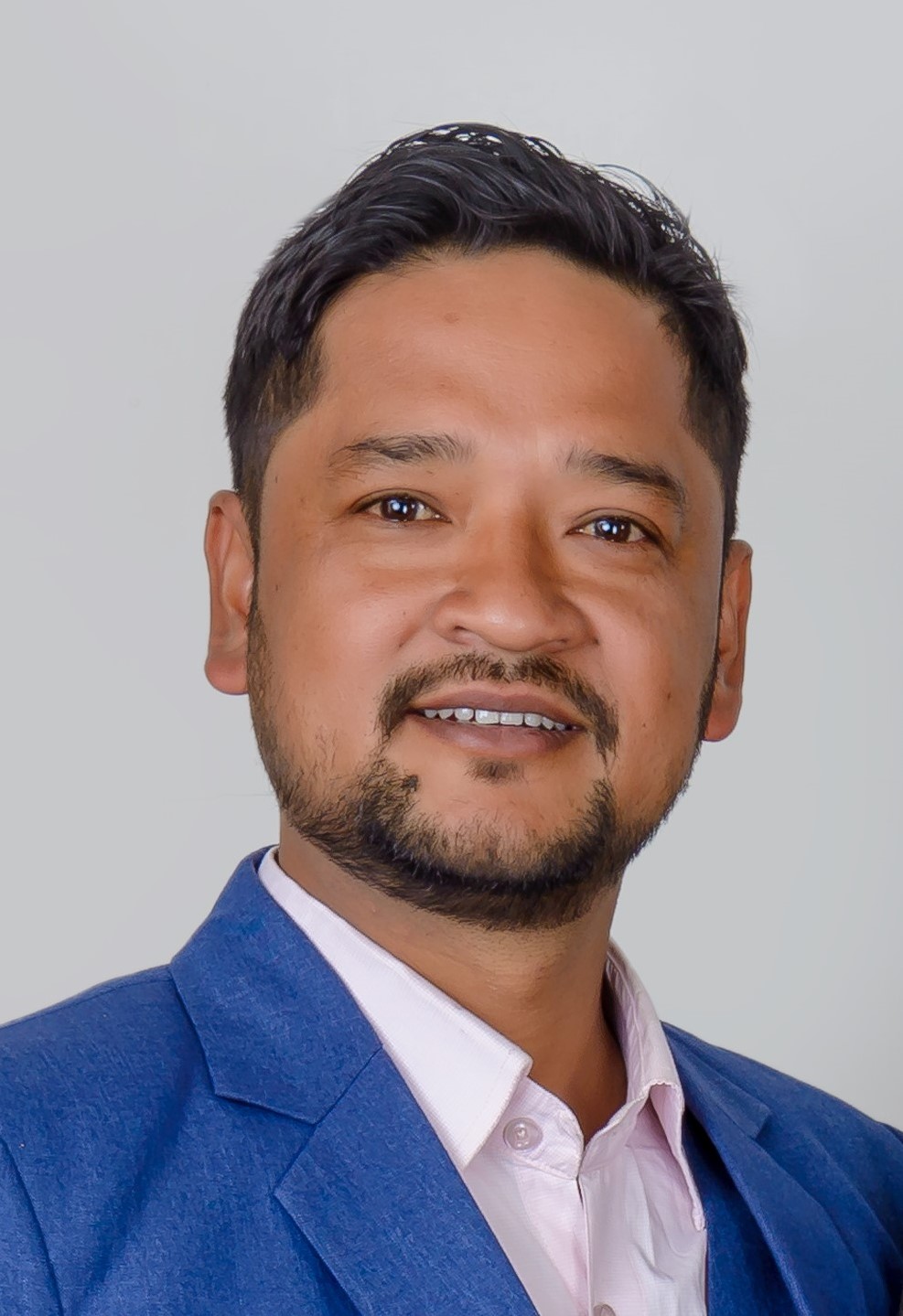
Mr. Prashanta Raut (Administrative Director)
M.Sc. Agroecology, Norwegian University of Life Sciences
An experienced Agroecologist with more than 10 years of experience in agricultural research and extension, Mr. Raut has a Masters degree in Agroecology from Norwegian University of Life Sciences and obtained B.Sc. Agriculture from Institute of Agriculture and Animal Science, TU. Mr. Raut’s research experience mostly covers topics like emission from agriculture land, nutrient management in cereal crops, crop intensification and use of alternative soil amendments like biochar. He has conducted field and growth chamber experiments on green house gas emission from grasslands, phosphorus management in wheat, system of wheat intensification and use of biochar in maize production. The researcher is currently working in capacity of Administrative Director at Agricultural Technology Center Pvt. Ltd. (ATC) and manages all the admininistrativemoperations and responsible for developing new and farmer friendly technology for nutrient management and farm decision making. In addition to the research works, he has also worked in development sector with specialization in Trade Development, Trade Policy, Value chain, market systems, Private sector development, Rural development, Market research etc. He has previous working experience in coffee value chain development program with extensive knowledge in Project Cycle Management concept and logical framework approach. Has fluency in Nepali and English languages and looking for collaborative research opportunities in utilizing organic coffee farming for promoting soil carbon sequestration.
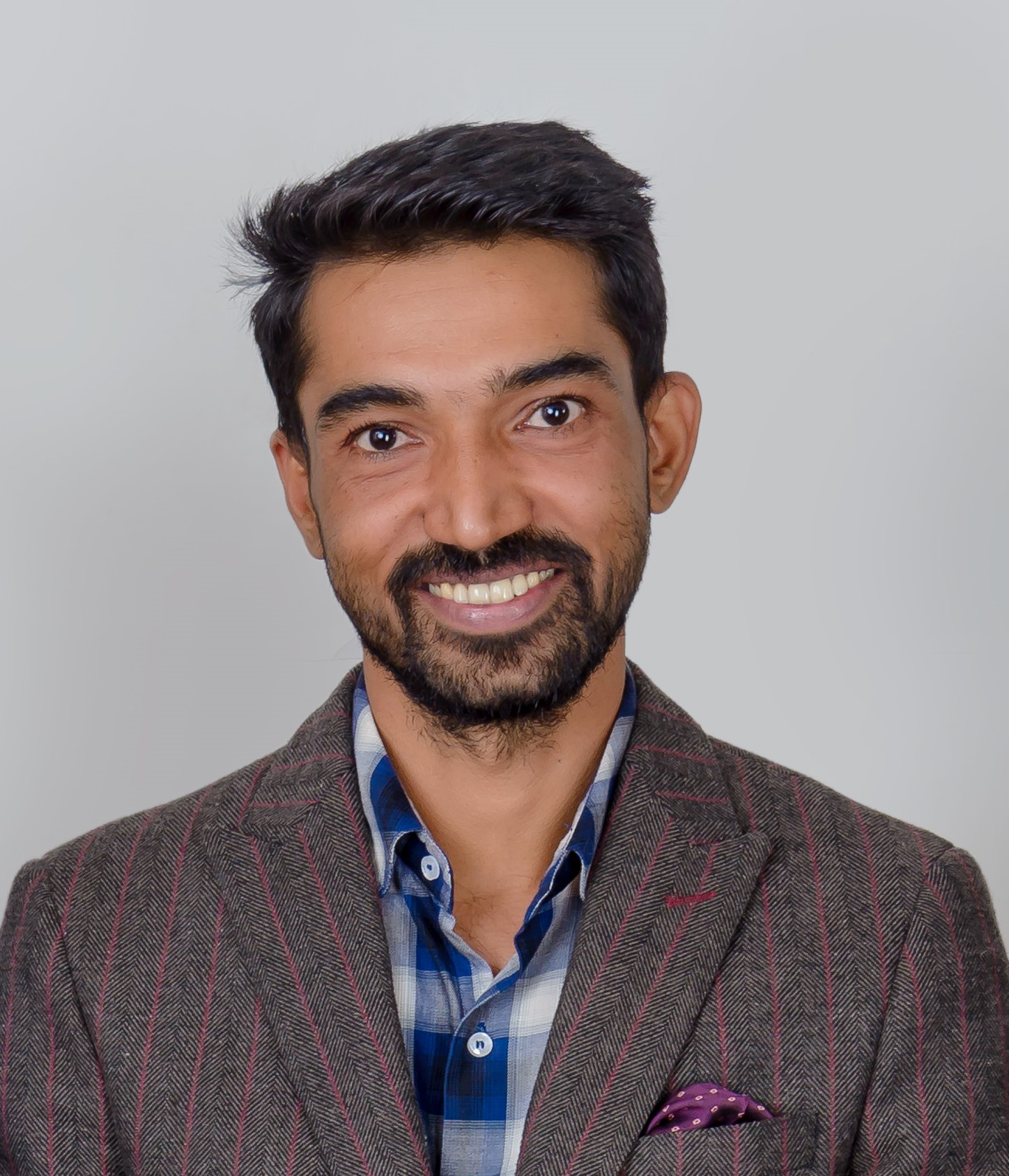
Mr. Shiva Shankar Sharma (Director)
M.Sc. Plant Science, Norwegian University of Life Sciences
An experienced agriculture and food security specialist with more than 10 years of experience in project development, management and research execution. Mr. Sharma has a Master’s degree in plant science from Norwegian University of Life Sciences. He has worked primarily in the sector of food security, livelihood, agriculture entrepreneurship, agriculture value chain and rural market system development. He has extensive knowledge in quality assurance and facilitation of project implementation.
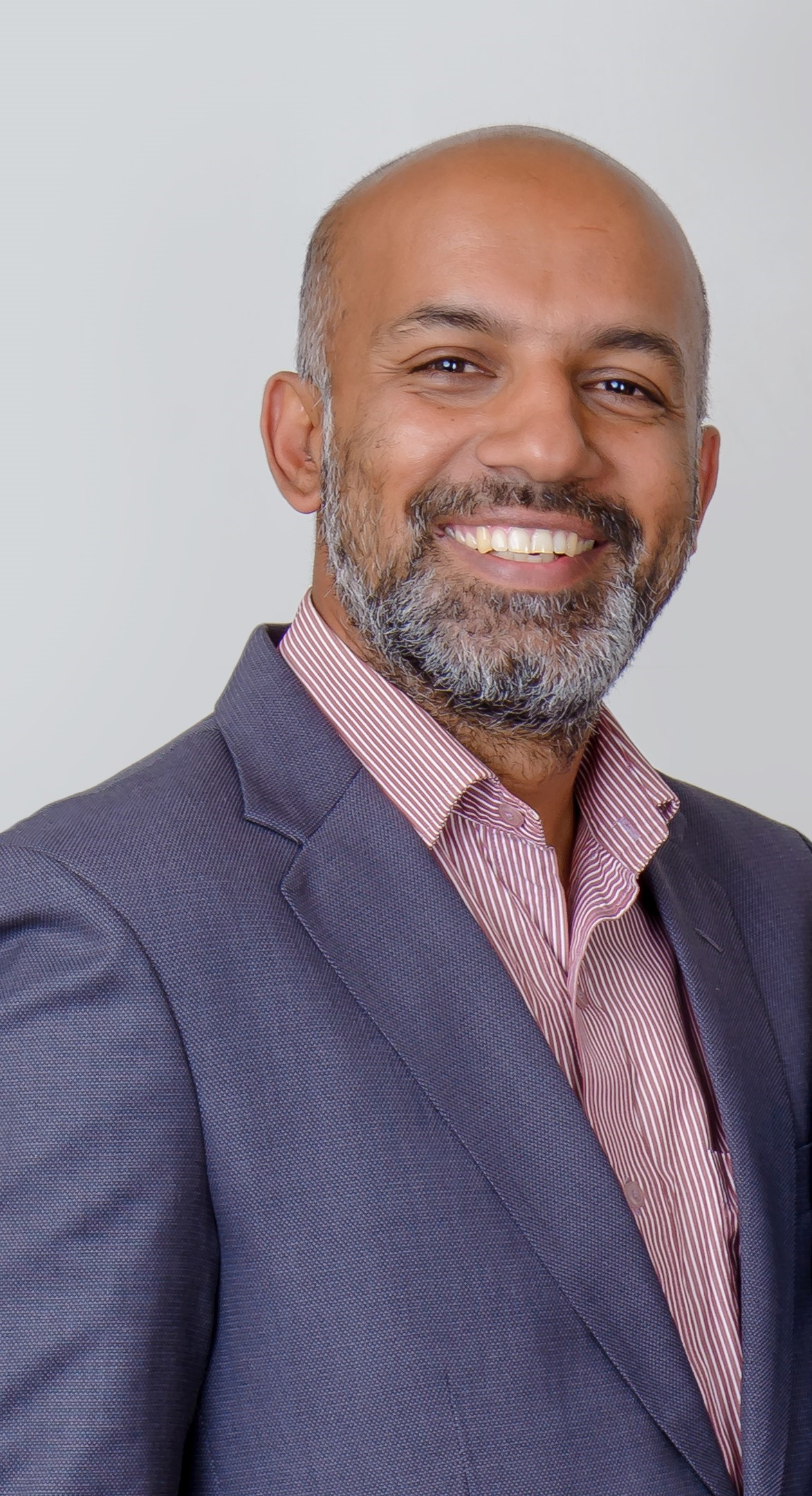
Mr. Rajan Dhakal, PhD. (Director)
PhD. Animal/Livestock Husbandry and Production, University of Copenhagen
Dr. Rajan Dhakal is a distinguished researcher in the field of animal nutrition and production. He is currently a Guest Researcher at the Department of Veterinary and Animal Sciences, University of Copenhagen, working for VILOFOSS, Denmark, as an industrial postdoc. His research primarily focuses on sustainable livestock production, rumen fermentation, and the impact of various dietary supplements on animal health and performance. Dr. Dhakal has contributed significantly to the scientific community with numerous publications in high-impact journals. He collaborates with researchers worldwide and is known for his innovative approaches to improving animal nutrition and reducing environmental impacts. In addition to his research, Dr. Dhakal is actively involved in mentoring students and young researchers, fostering the next generation of scientists in the field. His dedication to advancing knowledge and promoting sustainable practices in animal agriculture has earned him recognition and respect within the scientific community. Dr. Dhakal is multilingual and proficient in English, Nepali, and Hindi, enabling him to collaborate effectively with various international researchers and institutions. He believes in the philosophy of "act locally and impact globally," striving to make a positive difference in local and global contexts through his work.

Mr. Tej Thapa
M.Sc. Natural Resource Management, Asian Institute of Technology (AIT), Thailand
Tej Thapa: Master in NRM from AIT, Thailand and MBA+ certificate
from Portland State University, USA. He has earned many years of
working experiences with the Nepal government, bi-lateral agencies
then GTZ and now GIZ, multilateral like FAO and EU, International
NGO – Mercy Corps and many freelancing works with different
development agencies in the field of Agri-Food System related MSMEs in production and
marketing particularly focusing the sustainability issues in terms of social, environmental
and economic governance (ESG) and its resilience at the local level and sectoral level of
its functioning. He has been associated with ATC from last two years as Independent Consultant
and as a member of ATC while carrying 2 very important studies namely 1) Tea Sector Sustainability
Assessment in Nepal financed by GGGI, S. Korea and 2) Feed the Future of USAID –
Assessing the Alternative Soil Amendment Products in Nepal.
His professional expertise deeply focuses in Agricultural Value Chain and Market System Analysis, Project Management and Implementation
,Climate Change and Resilience Advisory Services and Research and Studies.
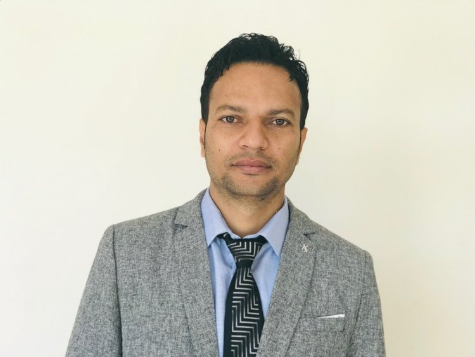
Dr. Nabraj Pandit
Ph.D. Soil Science and Agronomy, Norwegian University of Life Sciences
Dr. Pandit is soil scientist with more than eight years of experience in agricultural research and development. Dr. Pandit has obtained his Ph.D. degree in the field of soil science and agronomy from Norwegian University of Life Sciences in the year 2018. He has master’s degree in Geo Information Science (GIS) from Salzburg University, Austria and in Rural Development from Tribhuvan University Nepal and obtained BSc in Agriculture from Himalayan Agriculture of Sciences and Technology (HICAST). He has a research experience in biochar production technologies, characterization of biochar, use of biochar as a soil amendment and carbon sequestration, soil fertility management, agronomy, agroforestry, biogeochemistry, agroecology and precision nutrient management. He has a sound knowledge in setting up both field trials and greenhouse experiment, analysing soil and plants samples for their physiochemical properties and nutrient availability and performing in-situ greenhouse gas (GHG’s) emission measurement. He has published several research papers in an international peer-reviewed journals.
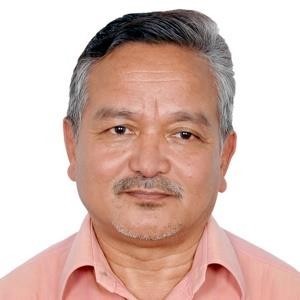
Mr. Ishu Shankar Shrestha
Postgraduate Diploma Plantation Management
Mr. Ishu Shankar Shrestha is a highly experienced professional in agriculture and market development, with over 36 years of expertise spanning the public, private, and development sectors. Throughout his career, he has progressively taken on innovative leadership roles and high-level management responsibilities. He dedicated more than 20 years to the Government of Nepal, serving in various capacities across different districts, including Lead Role of the National Tea & Coffee Development Board. Additionally, he has contributed over 16 years of expertise in technical and managerial roles within the private and development sectors. Mr. Shrestha played a pivotal role in the development of Nepal’s Tea Policy, Coffee Policy, and the proposed Provincial Cardamom Policy. His expertise includes advising on plantation and commercial vegetable crops, market-led processing, and product development. Currently, he is associated with ATC, Lalitpur, as a Plantation Management Crop Specialist and Consultant, specializing in IoT applications and market-driven climate-smart technologies for plantation and commercial vegetable crops, as well as market-led processing. His work extends to program design, management, and implementation. Mr. Shrestha holds a Postgraduate Diploma in Plantation Management and a Bachelor’s degree in Fruit Production and Processing. His extensive professional network enables strong collaboration with central, provincial, and municipal/rural municipal governments, as well as private sector stakeholders. Over the course of his career, he has traveled extensively across Nepal, working in almost every district from east to west.
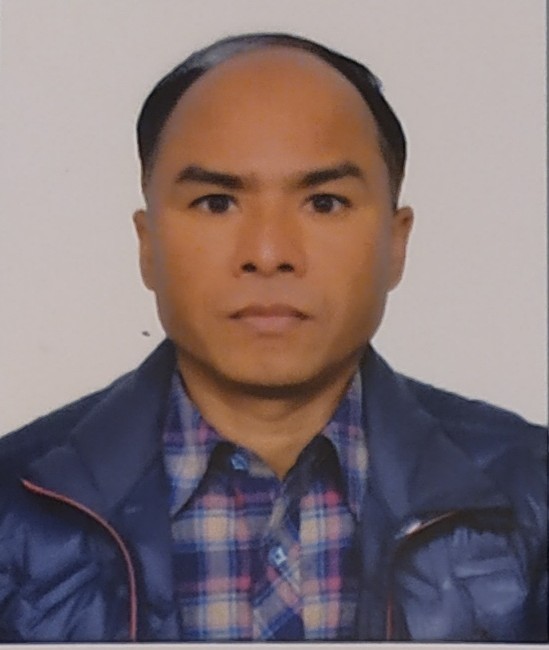
Mr. Ganesh Rawat
M.Sc.Horticulture, Norwegian University of Life Sciences
Mr. Rawat is a seasoned Horticulturist and Agricultural Development Professional with over a decade of experience driving positive change in academia, extension and development sectors. Holding a Master's degree in Horticulture from the prestigious Norwegian University of Life Sciences (NMBU) Norway and a foundational B. Sc. in Agriculture from the Institute of Agriculture and Animal Science (IAAS), Tribhuvan University, Mr. Rawat possesses a unique blend of theoretical knowledge and practical applications. His academic career includes serving as an Assistant Professor at TU Mahendra Ratna Multiple Campus, where he delivered engaging instruction and conducted significant research in horticulture. Beyond academia, Mr. Rawat's extensive experience in development initiatives funded by leading international organizations such as IFAD, the World Bank, FAO, USAID and JICA demonstrates his commitment to sustainable agricultural development. His specialized expertise encompasses a broad spectrum of critical areas. He is highly skilled in Value Chain Development, optimizing agricultural value chains to enhance farmer incomes and market access, and Institutional Development- strengthening agricultural institutions to improve service delivery and sustainability. He also has high level expertise in Climate-Smart and Nutrition-Sensitive Agriculture, integrating climate resilience and nutritional considerations into agricultural practices. Furthermore, he has deep experience in Rural Entrepreneurship Development, fostering entrepreneurial skills and opportunities for rural communities, and Market Systems Development, enhancing market efficiency and access for agricultural products. In addition to those skills, he has deep understanding of GESI Integration, integrating Gender Equality and Social Inclusion principles across all agricultural development activities. Mr. Rawat demonstrates proven abilities in business plan development, project implementation, monitoring and evaluation, and the application of project cycle management and logical framework approaches.
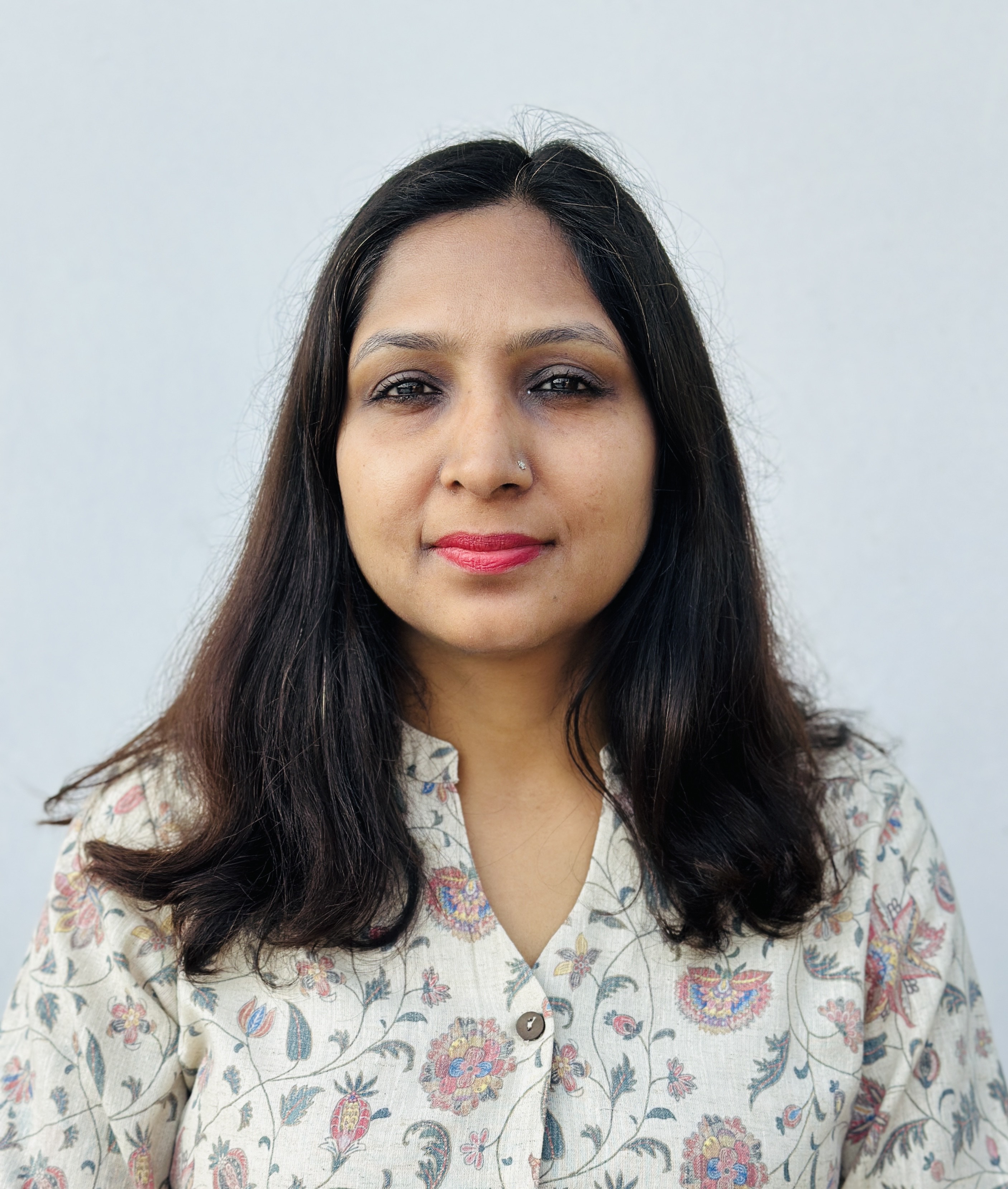
Mrs. Aruna Parajuli
M.Sc. Agricultural Economics & Farm Management, Jawaharlal Nehru Krishi Vishwa Vidyalaya, India
Mrs. Parajuli is an well versed professional with over 10 years of experience in project management, monitoring and evaluation, partnership management, research and development. She has worked extensively in Nepal’s agriculture system, food security, livelihood enhancement, climate change adaptation, and local economic development. Her expertise includes market systems, value chain development, and private sector engagement. She has collaborated with diverse stakeholders in planning, implementation, data collection, and reporting for large, multisector programs. She is proficient in digital data collection, qualitative and quantitative research, and resilience measurement, and specializes in Disability Inclusive Livelihood Interventions, enhancing resilience for people with disabilities through climate change adaptation practices

Mr. Saroj Koirala
M.Sc. Environmental Studies, Norwegian University of Life Sciences
Mr. Koirala has a Master’s degree in International Environmental Studies from Norwegian University of Life Science (NMBU). Mr. Koirala’s research interests are primarily focused on how environmental change and nature-society interactions can be understood and studied, and in particular how we can respond and manage change. Mr. Koirala have acquired an in-depth understanding of how governance structures and power relations influence current trends and options for achieving more sustainable development pathways. His key interests are on theoretical and empirical analysis within livelihood vulnerability, eco-system services, global environmental change, sustainable agriculture, agro-ecology and sustainable rural livelihood.
